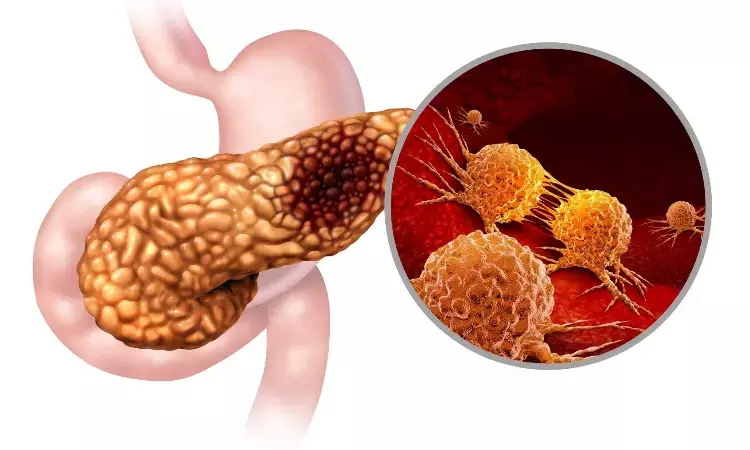- Home
- Medical news & Guidelines
- Anesthesiology
- Cardiology and CTVS
- Critical Care
- Dentistry
- Dermatology
- Diabetes and Endocrinology
- ENT
- Gastroenterology
- Medicine
- Nephrology
- Neurology
- Obstretics-Gynaecology
- Oncology
- Ophthalmology
- Orthopaedics
- Pediatrics-Neonatology
- Psychiatry
- Pulmonology
- Radiology
- Surgery
- Urology
- Laboratory Medicine
- Diet
- Nursing
- Paramedical
- Physiotherapy
- Health news
- Fact Check
- Bone Health Fact Check
- Brain Health Fact Check
- Cancer Related Fact Check
- Child Care Fact Check
- Dental and oral health fact check
- Diabetes and metabolic health fact check
- Diet and Nutrition Fact Check
- Eye and ENT Care Fact Check
- Fitness fact check
- Gut health fact check
- Heart health fact check
- Kidney health fact check
- Medical education fact check
- Men's health fact check
- Respiratory fact check
- Skin and hair care fact check
- Vaccine and Immunization fact check
- Women's health fact check
- AYUSH
- State News
- Andaman and Nicobar Islands
- Andhra Pradesh
- Arunachal Pradesh
- Assam
- Bihar
- Chandigarh
- Chattisgarh
- Dadra and Nagar Haveli
- Daman and Diu
- Delhi
- Goa
- Gujarat
- Haryana
- Himachal Pradesh
- Jammu & Kashmir
- Jharkhand
- Karnataka
- Kerala
- Ladakh
- Lakshadweep
- Madhya Pradesh
- Maharashtra
- Manipur
- Meghalaya
- Mizoram
- Nagaland
- Odisha
- Puducherry
- Punjab
- Rajasthan
- Sikkim
- Tamil Nadu
- Telangana
- Tripura
- Uttar Pradesh
- Uttrakhand
- West Bengal
- Medical Education
- Industry
Obesity and Diabetes Linked to Increased Pancreatic Cancer Risk: UK Biobank Study

UK: A recent study based on the UK Biobank cohort suggests that general obesity and diabetes may contribute to a higher risk of developing pancreatic cancer. The 10-year study revealed that a higher allometric fat-mass index (AFI) was associated with a 10% increased risk of pancreatic cancer, with a more pronounced effect in women under 55 (HR: 1.45).
"The allometric lean-mass index (ALI) was linked to a 7% elevated risk, showing a significant association in men (HR: 1.13). Diabetes emerged as a strong risk factor for pancreatic cancer (HR: 1.68), with the highest risk observed in women during the first six years (HR: 2.46)," the researchers reported in Cancer Medicine.
Obesity and diabetes have been linked to an increased risk of pancreatic cancer, but the specific contributions of fat mass and fat-free mass to this association remain unclear. It is also uncertain whether general obesity poses a greater risk than abdominal obesity or if these factors, along with diabetes, independently influence pancreatic cancer risk.
For this purpose, Sofia Christakoudi, Department of Epidemiology and Biostatistics, School of Public Health, Imperial College London, London, UK, and colleagues used Multivariable Cox proportional hazards models to assess the prospective associations between body composition—measured by the allometric fat-mass index and allometric lean-mass index via bioelectrical impedance—waist size, and diabetes with pancreatic cancer risk in the UK Biobank cohort. AFI and ALI were uncorrelated with each other and height, while the allometric waist-to-hip index (WHI) was independent of weight and height. Heterogeneity was evaluated based on sex, age, and follow-up time using the augmentation method (p_het).
The study led to the following findings:
- Over an average follow-up of 10.4 years, 999 cases of pancreatic cancer were identified among 427,939 participants.
- AFI was linked to an increased pancreatic cancer risk independent of ALI, WHI, diabetes, and other factors (HR: 1.102 per 1 SD increase).
- The association was stronger in women under 55 at recruitment (HR: 1.457) and men after six years of follow-up (HR: 1.159).
- ALI was also associated with a higher pancreatic cancer risk (HR: 1.072), with a stronger effect observed in men (HR: 1.132).
- WHI showed a positive association with pancreatic cancer in unadjusted models, but the link disappeared after accounting for smoking and diabetes.
- Diabetes was independently associated with higher pancreatic cancer risk (HR: 1.688), with the strongest effect in women within the first six years of follow-up (HR: 2.467).
The study indicates that general obesity, as measured by AFI and ALI, along with diabetes, is independently associated with an increased risk of pancreatic cancer. The association with AFI was more pronounced in younger women, highlighting them as a key target group for public health interventions. However, in men, the risk became more evident over a longer follow-up period, suggesting a link to cancer-related cachexia.
"Additionally, diabetes showed a stronger association closer to diagnosis in women, indicating a potential role in cancer-related diabetes induction. Abdominal obesity, however, did not demonstrate an independent association with pancreatic cancer risk after accounting for general obesity, height, smoking, and diabetes," the authors concluded.
Reference:
Christakoudi, S., Tsilidis, K. K., Gunter, M. J., & Riboli, E. (2025). Prospective Associations of Body Composition and Body Shape With the Risk of Developing Pancreatic Cancer in the UK Biobank Cohort. Cancer Medicine, 14(6), e70809. https://doi.org/10.1002/cam4.70809
Dr Kamal Kant Kohli-MBBS, DTCD- a chest specialist with more than 30 years of practice and a flair for writing clinical articles, Dr Kamal Kant Kohli joined Medical Dialogues as a Chief Editor of Medical News. Besides writing articles, as an editor, he proofreads and verifies all the medical content published on Medical Dialogues including those coming from journals, studies,medical conferences,guidelines etc. Email: drkohli@medicaldialogues.in. Contact no. 011-43720751


